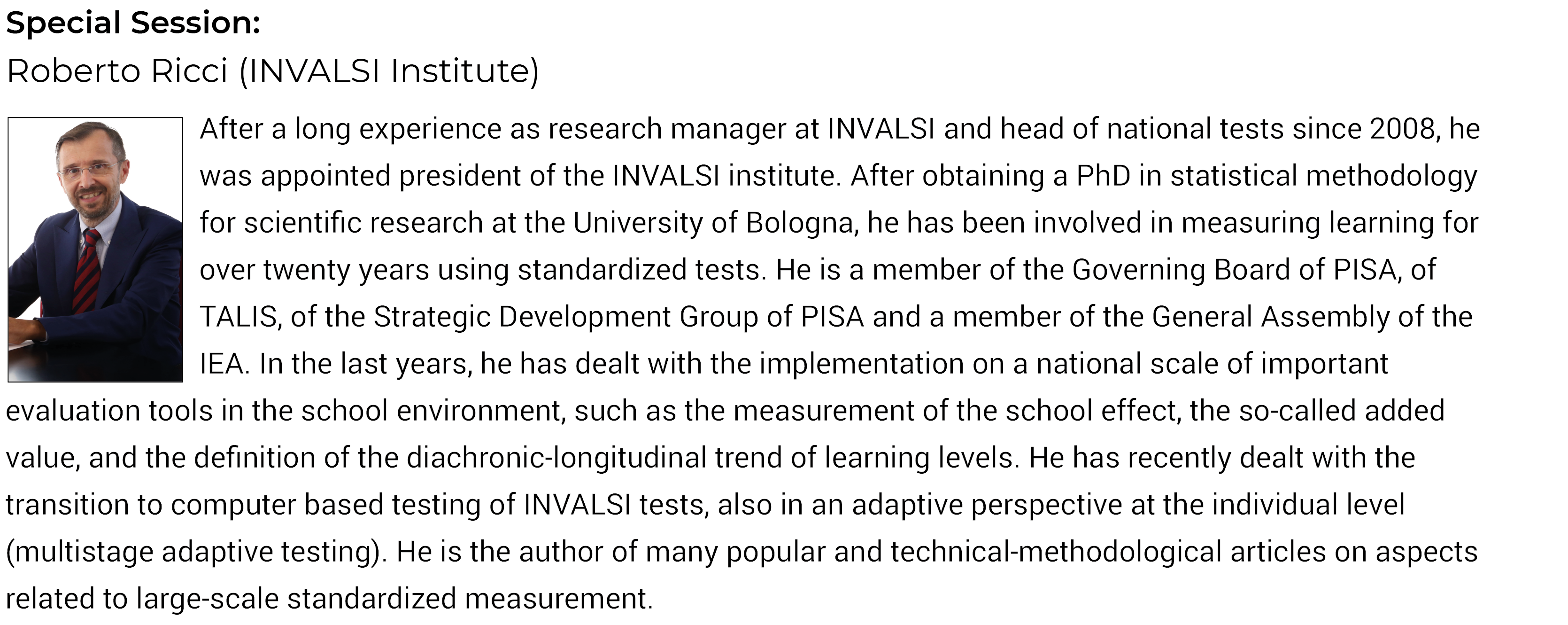We invite submissions from scholars who are interested in contributing to the debate about how statistical models, analytics, and quantitative methods can serve as a powerful tool in supporting decision-makers. We seek submissions that highlight the advancements in theoretical modelling and how these models can be aligned with policy and managerial issues in education, health, and societal public domains. Statistical innovation is essential in providing actionable insights for fostering schools’ and universities’ efficiency, raising educational effectiveness, and supporting disadvantaged individuals. This workshop provides an ideal context for presenting advanced methodologies applied to solve clear policy and managerial problems in educational, health, and societal public domains. We welcome papers that propose innovative and effective models based on sound theoretical frameworks and supported by empirical evidence.
We encourage submissions from a variety of disciplinary perspectives, including but not limited to, education, economics, sociology, psychology, and statistics. We particularly welcome submissions that propose interdisciplinary models that draw on insights from multiple disciplines. This workshop provides an opportunity for scholars to share their research and to engage in discussions with other scholars and practitioners in the field. We encourage submissions that provide practical insights and recommendations for improving the education sector and public domains, and that are written in a way that is accessible to policymakers, managers, and practitioners in the field.
Together, we can build appropriate models that respond to societal policy and drive positive change in education and public domains. We look forward to receiving your submissions.
SUBMISSION
Scholars interested in joining the Workshop are invited to submit an extended abstract of at most 2000 characters in PDF format via Email to: workshop-analytics-dig@polimi.it. Deadline submissions must be due on 15th June 2023. Recall that required information include title, authors, affiliation (for each author), institution address (for each author), e-mail address (for each author).
Prospective participants can propose not only single papers, but also entire sessions, that can share thematic interests or methodological approaches. In this case, please indicate the name of the Chair responsible for organizing the session. Also, some sessions will be devoted to offer a platform for exchanging practitioners’ experience; in this vein, we strongly encourage submissions from practitioners working in education institutions, governments, agencies, charities, etc.







